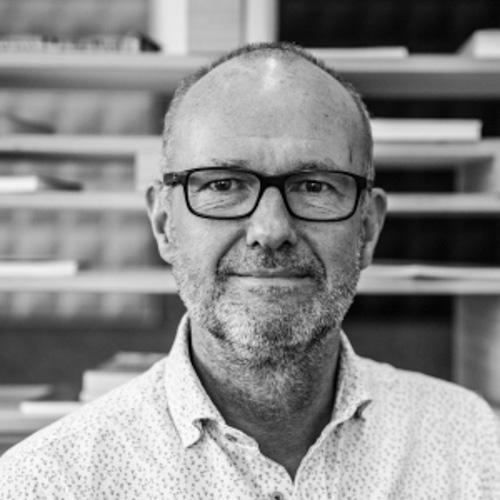2004-2009| FWO
Promotor
Copromotor
Pelleraiux K. (UA)
Vanderweyden K. (UA)
Researchers
Vandeweyer J. (VUB SOCI)
Desmet B. (VUB SOCI)
Van Parijs H. (UA)
Eerder onderzoek van de TOR-groep benadrukte de belangrijke functie die bezoldigde arbeid vervult voor de maatschappelijke integratie van individuen. Arbeid is o.m. belangrijk, zoniet onmisbaar voor het ontwikkelen van een sociale orientatie en gevoel van verbondenheid met anderen, is een belangrijke bron van (abstracte) sociale contacten, structureert de individuele en sociale tijd en is belangrijk als voedingsbodem voor het sociale weefsel van de samenleving. Het doctoraatsonderzoek van Vanderweyden daagt een aantal van de centrale stellingen van het TOR-onderzoek naar de betekenis van arbeid uit. In haar proefschrift stelt ze de these in vraag dat betaalde arbeid onder alle omstandigheden de beste integrator is. Volgens haar is betaalde arbeid minder onmisbaar voor de sociale integratie van mensen dan doorgaans wordt aangenomen. Zo blijkt dat gepensioneerden, huisvrouwen en deeltijds werkenden onder bepaalde omstandigheden of in bepaalde opzichten hun situatie zelfs gunstiger beleven dan (voltijds) werkenden.
De onderzoeksgroep Cultuur en Welzijn van de UA/PSW en de onderzoeksgroep TOR van de VUB wilden in onderhavig project hun expertise samenvoegen en deze problematiek van het belang van arbeid en niet-arbeid voor de sociale integratie nader onderzoeken. Hiertoe gaan we na hoe de sociale integratie verloopt van mannen en vrouwen die bewust hun arbeidsparticipatie (tijdelijk) afbouwen.
Het onderzoek bestaat uit het afnemen van een vragenlijst bij ongeveer 1600 Vlaamse loopbaanonderbrekers: 400 mannelijke en 400 vrouwelijke voltijdse onderbrekers en 400 mannelijke en 400 vrouwelijke deeltijdse onderbrekers. Als controlegroep wordt de steekproef aangevuld met ongeveer 300 voltijds werkende Vlamingen. Bij de helft van de loopbaanonderbrekers – egaal verdeeld over de verschillende strata – werden tijdsbudgetdagboekjes afgenomen (voor tijdsbudgetcijfers is geen controlegroep vereist aangezien de resultaten vergeleken kunnen worden met een representatieve steekproef van Vlamingen uitgevoerd in 2004). De combinatie van een uitgebreide vragenlijst en de tijdsbestedingsgegevens zal unieke informatie opleveren over de leefsituatie van een populatie die er bewust voor opteert tijdelijk niet of minder te werken. Sinds 1 januari 2006 wordt het project volledig uitgevoerd door TOR.
Earlier TOR-research stresses the important function of paid work for the social integration of individuals. Labor is important, if not essential for the development of a social orientation and feeling of solidarity with others. Furthermore, it was found to be an important source of (abstract) social contacts, it structures the individual and social time and is an indispensable soil for the social tissue of a society.
The doctoral research of Vanderweyden challenges a number of the central propositions of the TOR-research into the meaning of working. In her dissertation, she questions the proposition that paid labour is the best social integrator under all circumstances. According to her paid labour is not as indispensable regarding the social integration of individuals as is generally accepted. It even appears that retired workers, housewives and part-time working people experience their life situation in a more positive way than their (full-time) employed counterparts.
The research group ‘Cultuur en Welzijn’ at the UA/PSW and the research group TOR at the VUB look to share their particular expertise to further investigate the issue of work and non-work on the social integration of individuals. Therefore we will look at the social integration processes of men and women who consciously and/or temporarily reduce their labour market participation.
A survey among 1600 Flemish career interrupters will be held: 400 male and 400 female full-time career interrupters as well as 400 male and 400 female part-time career interrupters. A control group of 400 full-time working Flemings will complete the sample. Half of the career interrupters? equally spread over the different strata? will be asked to fill out time-budget diaries (there is no need for a control group with regards to the time-use aspect since the results can be compared to a representative sample of Flemings that will be recorded in 2004). Since the TOR/VUB holds the expertise of time-budget research, the technically demanding analyses of the time-budget diaries will be carried out there. The main focus at the UA will lie in the analysis of the questionnaire.
The combination of the extended questionnaire and the time-budget diaries will provide a unique insight into the life situation of the population that voluntarily opts for a temporary reduction of paid labour.

